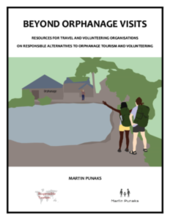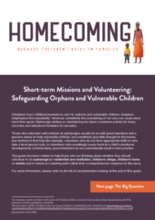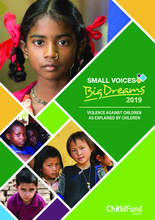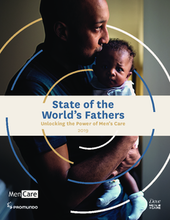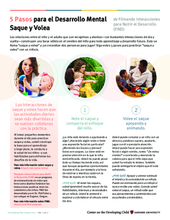Displaying 1921 - 1930 of 4401
This chapter from the book Modern Day Slavery and Orphanage Tourism aims to identify the motivations behind voluntourism, categorizing them into types so as to provide a foundation upon which we might better assess why it is that so many voluntourists seek to work with children, often in institutional environments.
In this article, the author deals with one of the most problematic issues of the migrant crisis, namely the deprivation of liberty of a unaccompanied migrant minor in his or her migrant journey.
This self-review helps organizational and program leaders evaluate, learn, and report on their organization's overall health, open to any organization working with vulnerable children in international contexts.
It is now widely accepted that visiting or volunteering in orphanages is harmful to children. The purpose of this resource is to bring together in one place some the best resources about this issue in order to assist travel and volunteering organisations.
This field guide, produced by Apolitical in partnership with Hope and Homes for Children, is designed to help public servants understand the issue of children in care. It covers the following learning objectives: (1) Understand why experts say institutional care is harmful to children, (2) Learn about deinstitutionalisation and new approaches to replace institutions and prevent family separation, and (3) Learn about interventions that have improved outcomes for kids who do experience care.
This guide was developed by Homecoming and has been written to help those in the Christian community who are thinking about whether they should volunteer in an orphanage (or residential care institution, children’s village, children’s home or centre).
This report presents the main conclusions from the 2019 Small Voices Big Dreams Technical Manual, which outlines in great detail the perceptions and opinions of children and adolescents from all over the world regarding the multiple dimensions of violence exercised against them.
State of the World’s Fathers, produced by Promundo, is a globally recognized, biennial report and advocacy platform aiming to change power structures, policies, and social norms around care work and to advance gender equality. The report examines the benefits of men's involvement in childcare, including benefits to the children themselves, and presents recommendations for achieving greater equity in care work among men and women.
Esta guía breve del Harvard Center on the Developing Child presenta 5 pasos para cuidadores practicar “saque y volea” con su niño/a.
This brief guide from the Harvard Center on the Developing Child outlines 5 steps for primary caregivers to practice serve and return with their child.


